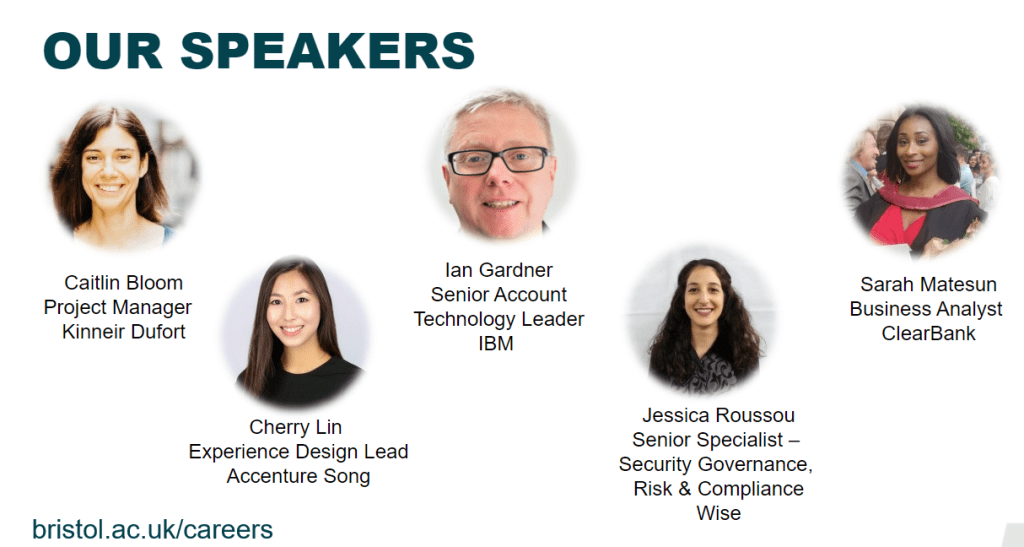In October, we ran our “How to get in AI and tech panel” event, which was for anyone with a non-technical degree, looking to enter the tech industry.
From Experience Design Leads to Senior Account Technology Leads, our panel provided anecdotal tips on applying for and flourishing within tech companies. All without an extensive understanding of technical practices. Below are a few of the keynotes that were particularly emphasised:

1. Don’t worry about your lack of technical knowledge
Lacking a tech background when working in the industry is no barrier. Most non-technical roles will involve some jargon that may mean nothing to you – and that’s okay!
Our speakers recommend getting comfortable with not knowing and asking questions.
2. Upskill
As emphasised by our speakers, leave the coding to the coders. But there’s no harm in grasping some technical concepts and showing off a proactive mindset. Your degree is only one source of education. Taking on courses that extend your skillset can improve your employability and confidence.
3. Network
Almost all our panellists mentioned their networking endeavours as beneficial. LinkedIn is a networking platform that can help you connect with individuals in companies/roles you aspire to. You can develop your LinkedIn skills by using guides such as LinkedIn 101 or attending the Careers Service’s events on developing networking skills. If you prefer in-person networking, attending conferences can also perform a similar function. Why develop a network? Because doing so can give you insider knowledge of a company’s values and recruitment processes.
TOP TIP: Tap into the hidden market of speculative applications! Sending cold messages or emails to company recruiters is perfectly acceptable. It could even lead you to opportunities that aren’t advertised!
4. Resilience is key – there are lots of routes to success
There is a myth that landing a role in a graduate scheme is the definition of success – this is wrong! Most of our panellists did not take this route and found their areas of interest with experience. For example, one panellist found working within a smaller company beneficial. This role gave her the chance to develop a broader range of skills and hold more responsibilities.
Joining placements rather than graduate schemes can also give you a year or so to extend your skills before applying for a permanent job role.

5. Prepare
Like most of these tips, preparation is important regardless of the industry. Our panellists recommend researching the values of the prospective company when writing your CV. Mentioning company features/projects that you are interested in is also good practice. If you’d like to learn more on how to incorporate research into your CV, use the Career Service’s Get your CV Ready Pathway. At the interview stage, many panellists practised roleplaying with friends. Running through frequently asked questions with family and friends can be a good way to do this.
TOP TIP: Several panellists mentioned creating a document with a list of interview questions. Questions were a mixture of online examples on Glassdoor.com or past interviews. You can use this to prepare response structures and rehearse for future interviews. The Careers Service also has some excellent resources available to help you prepare for interviews.
This was written by Devanshi Chengappa who is a final year Psychology with Innovation student working at the Careers Service. She is particularly interested in business management careers and hopes to work in the Green Energy space.
